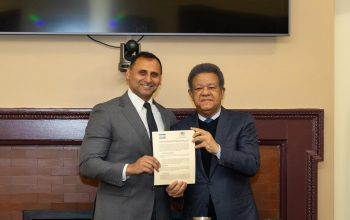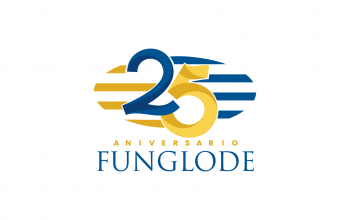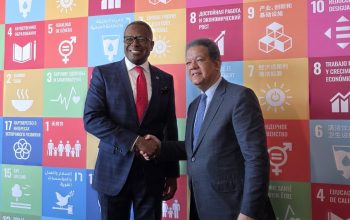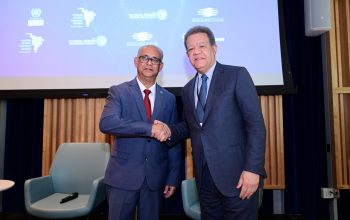news
“An Addendum to the Book on Kennedy and Bosch”, an article by Dr. Leonel Fernández
December 4, 2017
Bernardo Vega, a noted historian, economist, and diplomat recently published an addendum to his book Kennedy y Bosch (Kennedy and Bosch), which was originally published approximately 23 years ago, in 1993.
The book contains a series of documents which had been declassified by the United States government in addition to references from Dominican and U.S. periodicals, citations from books, and oral depictions of the events that took place
during the seven months of professor Juan Bosch’s government in 1963.
According to the author, he deliberately omitted his own commentary and did not provide evidence in the original version of the book “because he knew that he would likely have had to make adjustments once key documents were declassified.”
Now, with the publication of his addendum, Bernardo Vega has disclosed new internal correspondences between officials
in the Kennedy administration during the month of September in 1963, which coincides with the coup d’etat that put an end to the first Dominican democratic experiment following the disappearance of the dictatorship of Rafael Leónidas Trujillo.
In the updated text, Vega notes that in addition to citing new documents, unlike the previous book, in this occasion he does make value judgments: that is, that he makes known his own opinions of the events that
occurred.
It follows that in addition to its addendum, the book Kennedy y Bosch constitutes a valuable contribution to the knowledge of what happened in those crucial years of the fight for liberty, democracy, and social justice in the Dominican Republic.
That having been said, in the preface to the addendum, Vega begins by stating that he personally entrusted the first copy of his book Kennedy y Bosch to the former
Dominican head of state, who, according to his words “was very grateful.” Regardless, Vega later found out that Bosch had decided not to comment on the book “as if it had never been published.”
Facing this commentary, the following questions arise: Was Vega’s entrusting of a copy of his book to Juan Bosch conditioned on the former president’s public acknowledgment and comments on the work? Can Bosch’s
lack of comment be interpreted as his lack of acknowledgement of the publication? Where do these types of speculations come from? The answer is offered by Vega in the addendum, where he affirms in Olympic form that two factors led to his conclusions: first, because “obviously he (Bosch) wasn’t happy with what the book said” and second, because he supposed “that he (Bosch) didn’t possess arguments to the contrary.”
Historical Objectivity
In his introduction to the addendum for Kennedy y Bosch, the author of the collection on the United States and Trujillo surprisingly makes the following assertion: “Beginning in 1996, the administration of the Dominican Liberation Party (PLD), created by Bosch, has been in power for 16 years, during which time its “official line” has been one of highlighting its virtues and
obscuring the errors of its founder and great Dominican writer and politician.”
Immediately, he adds: “As a historian, I cannot allow myself to accept this, since objectivity is essential in historical inquiry.”
Personally, my relation with Juan Bosch, though not incredibly deep, was always very friendly. Bosch would reference my historical works in his party’s (the PLD) political newspaper, and on more than one
occasion he praised my efforts, stating “I enjoyed the gatherings that he (Fernández) participated in.”
I fully agree with Bernardo Vega in that objectivity is essential in historical inquiry. But if this is the case, from where does the idea come that the PLD has needed to devise an official line to highlight the virtues of its founder while obscuring his errors? This certainly is not true. The PLD has never worked in such a way to defend the
historical legacy of Juan Bosch. Within the rank and file of the party, the leader and founder of the political organization is profoundly admired and awarded great respect in a free, conscious, and spontaneous way for all of his contributions to making the Dominican public the architect of its own destiny.
Regarding the statements, judgments, and opinions of Ambassador John Bartlow Martin, a key figure in Bernardo Vega’s text, as laid out in his book
Overtaken by Events, professor Juan Bosch published explanatory articles on different occasions in the national press which demonstrated that he had his own arguments to refute the ambassador’s claims.
Likewise, as the author of the addendum anticipates, in a text that will be published by Funglode in the beginning of 2018, readers will be able to verify innumerable observations, critiques, and refutations made by the famed master of Dominican
letters and politics towards President Kennedy’s representative in the Dominican Republic after the death of Trujillo.
In refuting the ideas contained in Overtaken by Events, Bosch provides clear responses to a majority of the documents published in Kennedy y Bosch as well as the book’s addendum, since those same documents served as the foundation for the U.S. diplomat’s arguments.
Therefore, it will be shown that it wasn’t for a lack of argument or reasoning that the founder of the PLD neglected to comment on the economist Bernardo Vega’s book.
Two Versions of One Story
As a way to act with the full objectivity of a historian and not obscure the supposed errors of Juan Bosch, the former governor of the Central Bank and former director of the newspaper El Caribe (Vega)
affirms based on Ambassador Martin’s documentation from the eve of the September 1963 coup d’etat: “Bosch asked (Ambassador Martin) to put a U.S. aircraft carrier on alert and have it ready to come to Santo Domingo for what he described as a courtesy visit during which he would invite the ambassador along with the military high command on board to lunch.” “Ambassador Martin agreed in that Washington should put the aircraft carrier on alert,
but not in that it should be dispatched… At 4:30, Bosch requested that the aircraft carrier’s arrival time be reduced from 12 hours to 6 or 8… At 7:00 p.m., Bosch requested that the time be reduced to 6 hours.” Did it happen just like this, as narrated by Bernardo Vega through John Bartlow Martin’s documentation? No: it didn’t. Concerning this episode, there are at least two versions narrated by Martin himself, though Bernardo Vega only makes
reference to one of them.
For example, on pages 564, 568, and 570 of Overtaken by Events, Martin presents a different version from the one he transmitted to his country’s authorities. It is this version that is used as source material by Vega in his addendum.
However in another account, Ambassador Martin maintains that it was Sacha Volman, not Bosch, who asked him what the United States had done in 1961 when the Trujillos
returned to the Dominican Republic, to which he responded that the country had sent a fleet.
From there, the author of Overtaken by Events states that Volman didn’t believe it and looked at Bosch. That is to say, even Martin looked at him and awaited a response from the Dominican leader. But Bosch said nothing.
Volman asked how long it would take for the aircraft carrier to arrive, and the ambassador stated that it would be
difficult to tell where it was currently located, but that normally, the journey would take 12 hours.
The conversation continued between Sascha Volman and Ambassador Martin without a single word from President Bosch. It was then that the ambassador, according to his words, who stated that: “We have spoken a number of times about bringing an aircraft carrier and taking you on board for a lunch, Mr. President.” As we see in this recounting, it is the
ambassador John Bartlow Martin who reminds Juan Bosch that he had offered on a number of occasions to bring an aircraft carrier to the Dominican Republic and invite the president onboard for a lunch.
In the addendum to Bernardo Vega’s book, it is insinuated that Juan Bosch asked the U.S. ambassador “to put a U.S. aircraft carrier on alert and have it ready to come to Santo Domingo.”
Obviously, the second account of John
Bartlow Martin’s story is radically different from the one published in the addendum to Kennedy y Bosch.
To be completely objective as a historian, it is necessary to take into account different versions offered on a single event, even more so when they come from the same source, as is the case with the writings of Ambassador John Bartlow Martin.
It is easy to understand that a prestigious historian would not wish to follow
the otherwise nonexistent “official line” of a political party that aims to highlight the virtues of its leader and obscure its errors.
But what cannot be understood is that, in appealing to a supposed objectivity, a historian would hope to highlight errors, through lack of investigational rigor, that didn’t exist in order to obscure recognized virtues.






